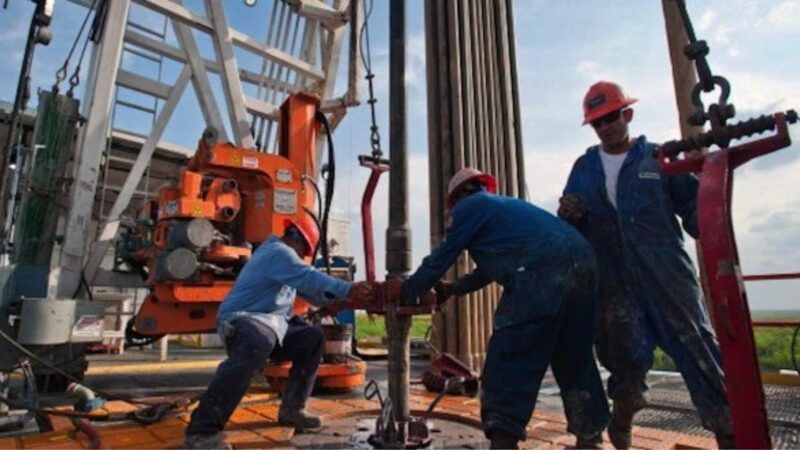BUA Group: From production to partnership
 BUA Group is expanding its exploits in cement production in Edo State through its subsidiary, BUA Cement, with plans to push output to 20MMT by 2027. Group Business Editor SIMEON EBULU writes on how the expansion transcends the social strata.
BUA Group is expanding its exploits in cement production in Edo State through its subsidiary, BUA Cement, with plans to push output to 20MMT by 2027. Group Business Editor SIMEON EBULU writes on how the expansion transcends the social strata.
In the quiet, lush landscapes of Okpella, Edo State, a visible transformation is underway. Once a sleepy community, it has become a bustling centre of industrial activity, with BUA Cement Plants at its heart. This is not just a story of cement production; it is a saga of growth, resilience, and an enduring partnership between BUA Cement PLC and the resilient people of Edo State.
It all began in 2008, when BUA Group, under the leadership of Abdul Samad Rabiu, acquired the struggling Edo Cement Company during Nigeria’s divestment and privatisation exercise.
The Edo Cement plant was barely functional, with antiquated equipment and limited output. BUA Group took the initiative in acquiring the struggling Edo Cement Company. At the time, the plant was operating well below capacity, saddled with outdated equipment, limited output and grossly inefficient.
For many, it was a symbol of lost potential, but not so for BUA Group, pioneered by Abdul Samad Rabiu. For BUA Cement, a subsidiary of the larger umbrella BUA GROUP, it was an opportunity to redefine what was possible for Edo State’s industrial landscape – a chance to turn it into a powerhouse.
By 2015, after investing over $1 billion, the first line of the Obu Cement Plant was operational, and it quickly became one of Africa’s most advanced cement facilities.
Since then, the company’s financial fortunes have mirrored its operational growth. In 2019, BUA Cement consolidated its operations by merging its subsidiaries, including the Cement Company of Northern Nigeria (CCNN) and Obu Cement Company. The merger streamlined operations and positioned BUA Cement as Nigeria’s second-largest cement producer.
In January 2020, BUA Cement was listed on the Nigerian Exchange Group (NGX) with an initial market capitalisation of N1.18 trillion. The listing unlocked access to capital markets, enabling BUA Cement to fund expansions and further strengthen its balance sheet.
Today, BUA Cement’s financial performance speaks volume. Despite challenges in Nigeria’s broader economic landscape, the company has consistently delivered strong revenue growth and profitability. In the most recent fiscal year, BUA Cement reported revenues exceeding N300 billion, driven by increased production capacity and robust demand for cement in Nigeria’s booming construction sector.
While BUA Cement’s financial success is impressive, Rabiu said, its contributions to Edo State’s economy go far beyond corporate earnings. According to him, it’s one of the state’s largest taxpayers, significantly contributing to it’s Internally Generated Revenue (IGR).
Renewed partnership
The BUA Group chair recalled that the company’s success so far in Edo State hasn’t been without challenges, saying there have been disputes over ownership, royalties, and mining leases, which led to legal battles that threatened to overshadow the company’s contributions.
These disputes, in his words, “culminated in the 2019 Terms of Settlement,” which he tagged, “a landmark agreement that resolved all outstanding issues and paved the way for collaboration.
“Under the settlement, BUA Cement agreed to pay N5 billion in total, including an upfront payment of N2 billion and six monthly installments of N500 million. The company also purchased the remaining shares in Edo Cement from minority stakeholders, thus consolidating its ownership.”
In corroborating this, a government official who asked that his identity be veiled, said: “This settlement wasn’t just about resolving disputes, it was about setting the stage for growth for BUA, Edo State and our people.”
For years, legal battles cast a shadow over what was otherwise a story of progress. The 2019 Terms of Settlement with the Edo State Government, entered into judgment by the courts, ended years of litigation and legal battles. These payments were not merely obligations; they became the foundation for renewed trust and collaboration.
The settlement not only resolved the disputes, but also bolstered the state’s fiscal capacity, enabling investments in infrastructure, healthcare and education which have culminated into tremendous benefits to the community at large.
Job creation
BUA Cement’s impact goes far beyond the balance sheet. For the people of Okpella and Edo State, it has meant jobs, empowerment, and a sense of belonging, resulting in over 2,000 people directly employed by the company, and thousands more benefiting indirectly.
A community leader, who requested not to be identified, said: “BUA is not just a company, it’s a partner in our growth. We have a community development agreement with them which they faithfully keep to,” adding that “BUA’s Corporate Social Responsibility efforts have also transformed the community.”The communal leader said roads that were once impassable now connect villages and markets, schools have been renovated, scholarships awarded and health centers established.







